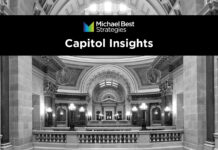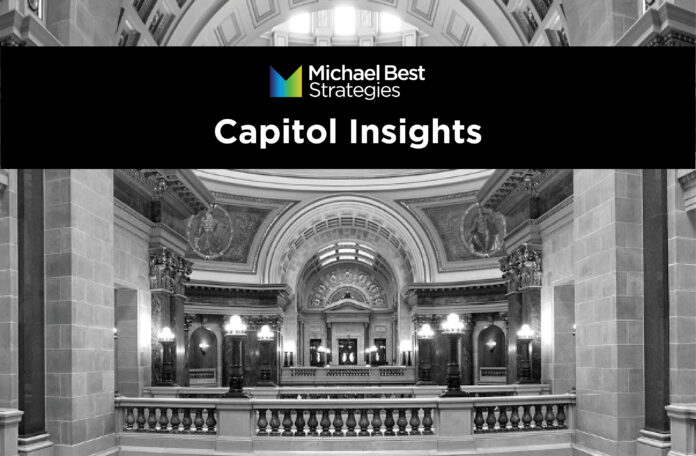
In this update:
- Administration Updates
- Supreme Court Updates
- Election Updates
Administration Updates
Evers calls special session to “address state’s chronic workforce challenges”
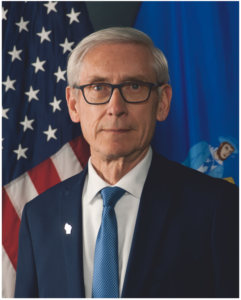 On Tuesday, Gov. Tony Evers called a Special Session of the Legislature for September 20, 2023, “to address the state’s longstanding, generational workforce challenges.” This is the 13th time the governor has called the legislature into special session since he was first elected in 2018. During previous special sessions called by Gov. Evers, the GOP-controlled legislature has quickly gaveled in and out without debate. For the upcoming special session, lawmakers will “solely consider and act upon LRB-4085/LRB-4086, relating to fall workforce package, granting rule-making authority, making an appropriation, and providing a penalty.”
On Tuesday, Gov. Tony Evers called a Special Session of the Legislature for September 20, 2023, “to address the state’s longstanding, generational workforce challenges.” This is the 13th time the governor has called the legislature into special session since he was first elected in 2018. During previous special sessions called by Gov. Evers, the GOP-controlled legislature has quickly gaveled in and out without debate. For the upcoming special session, lawmakers will “solely consider and act upon LRB-4085/LRB-4086, relating to fall workforce package, granting rule-making authority, making an appropriation, and providing a penalty.”
Pointing to historically low unemployment, high workforce participation, and a shrinking labor pool, a press release from Gov. Evers announcing the special session said the state’s “small businesses, farmers and producers, hospitals and healthcare sectors, schools, and other critical employers and industries continue to face significant challenges filling available jobs.” The release notes that Gov. Evers would like to invest over $1 billion of the state’s current $4 billion in leftover surplus “to prevent a looming collapse of the state’s child care industry and ensure child care is affordable and accessible for working parents and families, expand paid family leave, invest in higher education to help educate, train, retain, and recruit talented workers, and support targeted solutions to workforce challenges in high-need areas, specifically the state’s healthcare and education workforce sectors.” Key tenants of the governor’s proposed plan for the special session include:
- $365 million investment in child care across the state, including in Child Care Counts and Partner Up! Programs at the Wisconsin Department of Children and Families;
- $243.4 million to launch a paid family and medical leave program administered by the Wisconsin Department of Workforce Development;
- $281 million for investing in higher education such as the UW System, Wisconsin Technical College System, and the engineering building project at UW-Madison;
- $176 million to strengthen the state’s workforce, particularly in the healthcare and education sectors.
Reaction:
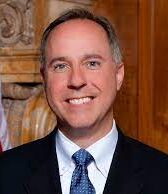 Speaker Robin Vos (R): “Today’s announcement is nothing more than a rehash of Tony Evers’ tax and spend budget. Democrats at the federal level tried spending recklessly to help the workforce and all we got for it was crushing inflation. We are not going to do that in Wisconsin. “Gov. Evers’ proposal to give childcare providers a one-time payment of $365 million is another 12-month patch to match what they just lost through the federal stimulus plan. It is unsustainable and does nothing to address the long-term problem faced by the childcare industry. “Republicans made the decision to return the budget surplus to the taxpayers through a middleclass tax cut. Governor Evers vetoed it. Now he’s rushing to spend billions of dollars again so it can’t be given back. “Our priority when we return in September will be to give Gov. Evers another chance to fix his mistake by signing a middle-class tax cut.”
Speaker Robin Vos (R): “Today’s announcement is nothing more than a rehash of Tony Evers’ tax and spend budget. Democrats at the federal level tried spending recklessly to help the workforce and all we got for it was crushing inflation. We are not going to do that in Wisconsin. “Gov. Evers’ proposal to give childcare providers a one-time payment of $365 million is another 12-month patch to match what they just lost through the federal stimulus plan. It is unsustainable and does nothing to address the long-term problem faced by the childcare industry. “Republicans made the decision to return the budget surplus to the taxpayers through a middleclass tax cut. Governor Evers vetoed it. Now he’s rushing to spend billions of dollars again so it can’t be given back. “Our priority when we return in September will be to give Gov. Evers another chance to fix his mistake by signing a middle-class tax cut.”
 Majority Leader Devin LeMahieu (R): “Instead of returning the state surplus to hardworking Wisconsinites, Governor Evers used his veto pen to raise taxes on every Wisconsinite making more than $27,630. Now he wants to use that same surplus to grow government and create new entitlement programs. The best way to fix Wisconsin’s workforce shortage is to create a competitive tax structure that will attract talent and private investment to our state. The Senate remains committed to providing meaningful tax relief for Wisconsin families and addressing our workforce shortage without growing government entitlement programs.”
Majority Leader Devin LeMahieu (R): “Instead of returning the state surplus to hardworking Wisconsinites, Governor Evers used his veto pen to raise taxes on every Wisconsinite making more than $27,630. Now he wants to use that same surplus to grow government and create new entitlement programs. The best way to fix Wisconsin’s workforce shortage is to create a competitive tax structure that will attract talent and private investment to our state. The Senate remains committed to providing meaningful tax relief for Wisconsin families and addressing our workforce shortage without growing government entitlement programs.”
Supreme Court Updates
New liberal majority on state Supreme Court alters court’s rules and procedures
The new liberal majority on Wisconsin’s Supreme Court released an updated set of rules and procedures that the court must now operate in accordance with. The most significant change includes the creation of a “supreme court administrative committee” that will assume most of the duties currently held by the court’s chief justice, Annette Ziegler, who is also one of the court’s three conservatives. The administrative committee will consist of the chief justice, as well as two justices selected by a majority of the court, which only last week came under a liberal majority for the first time since 2008. Republicans claim the liberal justices are violating the letter of the state Constitution by transferring the administrative authority explicitly vested in the chief justice to the administrative committee. However, Democrats have pointed out the Constitution gives the court the power to determine the extent of the chief justice’s administrative authority and the rules by which that authority can be exercised. The specific section of the state Constitution in dispute is Article VII, Section 4 (3) which reads, “The chief justice of the supreme court shall be the administrative head of the judicial system and shall exercise this administrative authority pursuant to procedures adopted by the supreme court.”
Legal observers have noted the procedural changes could make it harder for conservatives on the court to delay a recently filed lawsuit challenging the state legislative maps. The move also eliminates the chief justice as having sole authority over the state courts director and court system’s budget, as well as being the sole decisionmaker on appointments to the Wisconsin Judicial College and other state-level judicial committees. The newly-created administrative committee will now oversee those duties.
Reaction:
 Chief Justice Annette Ziegler: “Today, four rogue members of the court met in a secret, unscheduled, illegitimate closed meeting in an attempt to gut the Chief Justice’s constitutional authority as administrator of the court. Court business concerning Internal Operating Procedures and Supreme Court Rules is conducted when seven members of the court convene with an agenda prepared by the Chief Justice and at a time set by the Chief Justice during the court’s business year, which is September-June. The rogue justices’ attempt to go outside of this recognized procedure is an imposition of will and a raw exercise of overreaching power. Any such attempted action is illegitimate and unenforceable.”
Chief Justice Annette Ziegler: “Today, four rogue members of the court met in a secret, unscheduled, illegitimate closed meeting in an attempt to gut the Chief Justice’s constitutional authority as administrator of the court. Court business concerning Internal Operating Procedures and Supreme Court Rules is conducted when seven members of the court convene with an agenda prepared by the Chief Justice and at a time set by the Chief Justice during the court’s business year, which is September-June. The rogue justices’ attempt to go outside of this recognized procedure is an imposition of will and a raw exercise of overreaching power. Any such attempted action is illegitimate and unenforceable.”
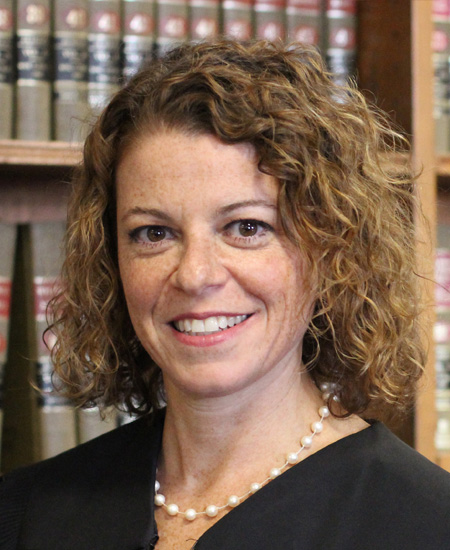 Justice Rebecca Dallet: “On behalf of a majority of justices on the Wisconsin Supreme Court, I want to express my disappointment that the Chief Justice, rather than collegially participate in a scheduled meeting of the court today, is litigating issues normally discussed by Justices either in conference or through email, through media releases. On May 19, 2023, the chief justice was asked to schedule a conference in August to discuss administrative changes. She declined to do so. On June 23, 2023, that request was reiterated again. The request was again refused … I want to reiterate that it is deeply inappropriate for the Chief Justice to continue to refuse to engage with her colleagues, but instead to publicly litigate these issues. It is not my intention, nor the intention of a majority of my colleagues, to continue to litigate internal issues, through the media.”
Justice Rebecca Dallet: “On behalf of a majority of justices on the Wisconsin Supreme Court, I want to express my disappointment that the Chief Justice, rather than collegially participate in a scheduled meeting of the court today, is litigating issues normally discussed by Justices either in conference or through email, through media releases. On May 19, 2023, the chief justice was asked to schedule a conference in August to discuss administrative changes. She declined to do so. On June 23, 2023, that request was reiterated again. The request was again refused … I want to reiterate that it is deeply inappropriate for the Chief Justice to continue to refuse to engage with her colleagues, but instead to publicly litigate these issues. It is not my intention, nor the intention of a majority of my colleagues, to continue to litigate internal issues, through the media.”
Justice Dallet’s full statement goes into further detail on the attempts she says the liberal justices made to work with Chief Justice Ziegler.
Second lawsuit filed challenging state legislative maps
This week a second lawsuit was filed with the state Supreme Court asking it to throw out the state legislative maps because of “extreme partisan gerrymanders in place under current districting plans for the Senate and Assembly.” The suit was filed on behalf of a group of Wisconsin voters called “Citizen Mathematicians and Scientists” who had submitted maps to the court during the 2022 redistricting process. Members of the group include the Chair of Computer Sciences at UW-Madison, the Chair of Mathematics at UW-Madison, and the past chair of Marquette University’s former Mathematics, Statistics and Computer Science Department. The group’s maps were not picked after the court ruled the 2022 maps needed to take a “least change” approach to the post-2010 maps. The suit filed this week alleges the 2022 maps “dilute and devalue Wisconsin citizens’ right to vote” and therefore violate several constitutional rights including the right to equal protection, free speech, assembly, and the right to petition one’s government. Moreover, the suit claims the current maps violate redistricting requirements set out in Article IV of the state Constitution, as well as separation-of-powers principles enshrined in it. Just like the suit filed last week, this suit asks the court to require state Senators elected last fall to be required to run in special elections in 2024 under the new maps. That would mean all 132 legislators would be up for election in 2024.
Election Updates
Walker featured speaker at Milwaukee “Newsmaker Luncheon”
Former Governor Scott Walker (R) was the featured speaker at a “Newsmaker Luncheon” in Milwaukee this week. The former governor, who is now the president of Young America’s Foundation — a group that focuses on the conservative movement’s outreach to teenage and college-age Americans — said he thought former President Donald Trump would participate in the first RNC debate scheduled for August 23rd in Milwaukee. “Whether you agree with him or not, a prizefighter belongs in the ring,” former Gov. Walker said. “And I don’t think when all is said, he can resist the idea that there’s going to be eight maybe nine or 10 people here in Milwaukee, Wisconsin, with all this national attention, and he’s not going to be the one there to talk about. And frankly, if I was advising him, I’d tell him to come.” Gov. Walker made his prediction on Tuesday, however, the next day former President Trump said during a cable news interview that he would not sign a pledge to support the eventual GOP nominee that is being required by the RNC to participate in the debate.
Former Gov. Walker also made the following comments during the luncheon:
- There is a “huge risk to offending Wisconsin voters” if former President Trump doesn’t attend the debate;
- The state Supreme Court would be setting “a horrible precedent” if it were to throw out Act 10 (the 2011 law signed by then-Gov. Walker that effectively eliminated bargaining rights for most state and local government employees);
- The drinking age should be lowered from 21 to 18. “If you can go to war and die for your country at age 18, you should be able to [drink].”
- Said Republicans need to do a better job at messaging to voters on abortion, as well as diversity, equity, and inclusion initiatives. He pointed to a bill he signed in Wisconsin prohibiting most abortions after 20 weeks. “The law I signed is 20 weeks,” Gov. Walker said. “Halfway, essentially, through a pregnancy, versus where most candidates are on the opposing view of mine, which is all the way to the life of the child is born. That’s a radical position.”


